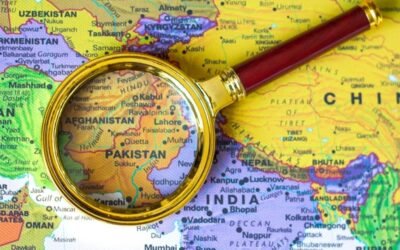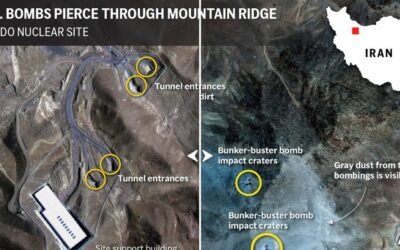In 2010, a landmark was introduced through the 18th Amendment to the Constitution of Pakistan converting the country into a decentralised form of government with increased powers to the provincial and local levels in respect to governance. The amendment was to establish a more inclusive political regime by decentralizing the authority of the central government to provinces and then to further lower authorities to the local levels.
Nonetheless, the ultimate question that remains even after over 10 years is, is devolution working? The article critically evaluates the paths which have impeded successful local governance, the political opposition to real devolution, and whether local governments have been responding to the needs of real citizens on the ground.
You May Like To Read: Relief Helicopter Crashes in Khyber Pakhtunkhwa Amidst Flood Response, Killing All Five Crew Members
Devolution Under the 18th Amendment
The 18th Amendment removed the powers of the federal government and it now allowed the provinces to make decisions on various issues such as education, healthcare, local policing, and natural resources. Its aim was to make governance more efficient and nearer to people by enabling local governments to take care of their issues.
Although the devolution process appeared to be successful on paper, in reality it has been fraught with difficulties. Even after these efforts, local governments have failed to access even half of their powers bestowed to them fully.
Challenges Facing Local Governments in Pakistan
Several barriers have led to the ineffective implementation of the devolution process:
1. Weak Institutional Frameworks
The Pakistani administrative system has never been characterized by strong institutions. Insufficient trained personnel and administrative capacity of the local bodies have also implied that in cases where powers are devolved, there is just no infrastructure in place to enforce the policies.
In addition, the local governments have been impeded by inter-provincial rivalries and slow legislative action. Consequently, despite constitutional support, local institutions may not have resources or the freedom to perform their functions.
2. Political Resistance
Political opposition by both provincial governments and the central government is one of the major causes of the failure of local governments. Numerous provincial governments particularly in Punjab, have not been willing to devolve to the full. They are eminent of losing control and power of administration functions and finances.
In Punjab, local body elections have been postponed one year after another, and political administrators have ruled instead of elected governments. This has brought in absence of accountability and citizen apathy. The central government has further been reluctant to give maximum powers to the local government and it has been inclined towards the single centralised government.
3. Financial Constraints
Financial resources are very vital in the local government system. Nevertheless, even though the local governments enjoy financial independence, they are usually under extreme financial pressure. The provincial governments are mandated to remit funds to the local bodies but they have consistently taken long or mismanaged. Consequently, municipal authorities cannot execute even simple programs such as waste, health, and education.
Local governments also do not necessarily have the ability to raise their own revenue, with most of the country centered around tax collection. This financial dependence makes the local governments less capable of serving their communities.
Federal Minister for Planning, Development and Special Initiatives Prof Ahsan Iqbal has stressed the urgent need to revitalize Pakistan’s agricultural sector, pointing out that the devolution of powers under the 18th Constitutional Amendment has not been implemented in its true… pic.twitter.com/pQneaUOwjo
— Business Recorder (@brecordernews) July 21, 2025
Empowering Local Authorities: What Needs to Change?
To make devolution work, the central government and provincial authorities need to focus on key reforms:
1. Strengthening Local Institutions
One of the main ways to empower local governments is by building stronger institutional frameworks. This includes providing training to local officials, improving administrative structures, and ensuring that local governments have the technical capacity to handle public services.
2. Financial Autonomy and Accountability
For local governments to thrive, they must have greater financial autonomy. This could be achieved by:
- Improving the tax collection system at the local level, particularly through property taxes and local business taxes.
- Ensuring that a greater portion of the provincial budget is allocated to local governments and that these funds are transferred on time.
3. Enhancing Local Political Participation
Local government elections should be regularly held and fairly conducted to ensure that representative democracy functions at the grassroots level. Additionally, political parties should be encouraged to invest in local elections to enhance citizen participation and accountability.
Case Studies: Khyber Pakhtunkhwa vs. Punjab
The experiences of Khyber Pakhtunkhwa (KP) and Punjab provide contrasting perspectives on how provinces have handled devolution.
Khyber Pakhtunkhwa (KP)
KP is often cited as a success story of local government implementation under devolution. The province has:
- Regular local government elections that have allowed local bodies to function effectively.
- A functional financial system, with the province allocating significant funds to local governments.
- Community-based development programs, ensuring local stakeholders are involved in decision-making.
While KP has made strides in devolution, it still faces challenges like limited financial resources and occasional conflicts between local governments and provincial authorities.
Punjab
On the other hand, Punjab has found it difficult to adopt the spirit of the 18 th Amendment altogether. The province has enacted local government laws and frameworks, but inactivity in local elections in many years has been a draw back. This group of political elites in the province has not embraced complete empowerment of local bodies and tend to circumvent these entities in favor of central control.
To illustrate, local governments were eradicated in the province of Punjab in 2019 and their abilities usurped by the government. This left a gap in the immediate rule, and this aggrieved peoples trust in the system.
You May Like To Read: Relief Helicopter Crashes in Khyber Pakhtunkhwa Amidst Flood Response, Killing All Five Crew Members
Conclusion: Is Devolution Really Working?
The devolution under the 18th Amendment has failed to realize its expectation because of a combination of political will, financial shortages, and poor institutional systems. Although more progress has been achieved in some provinces such as Khyber Pakhtunkhwa, Punjab has suffered a series of setbacks, especially in the sphere of local elections and political will.
To make devolution be successful in Pakistan, the local governments have to be empowered both financially and politically. The primary focus should be the reforms that will result in effective and participatory governance and citizen participation within the local governing system.




























